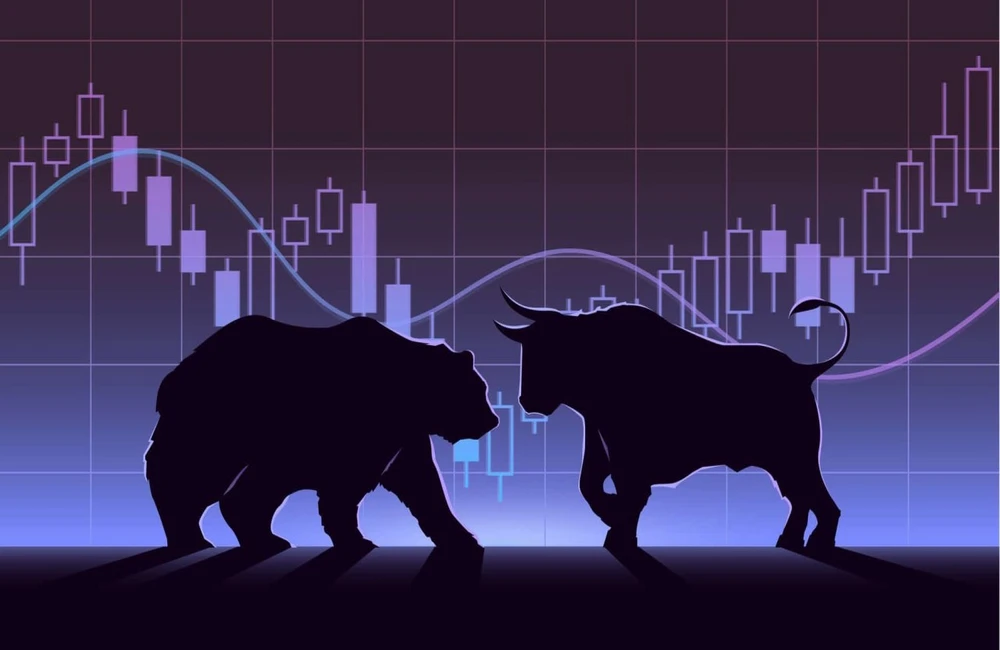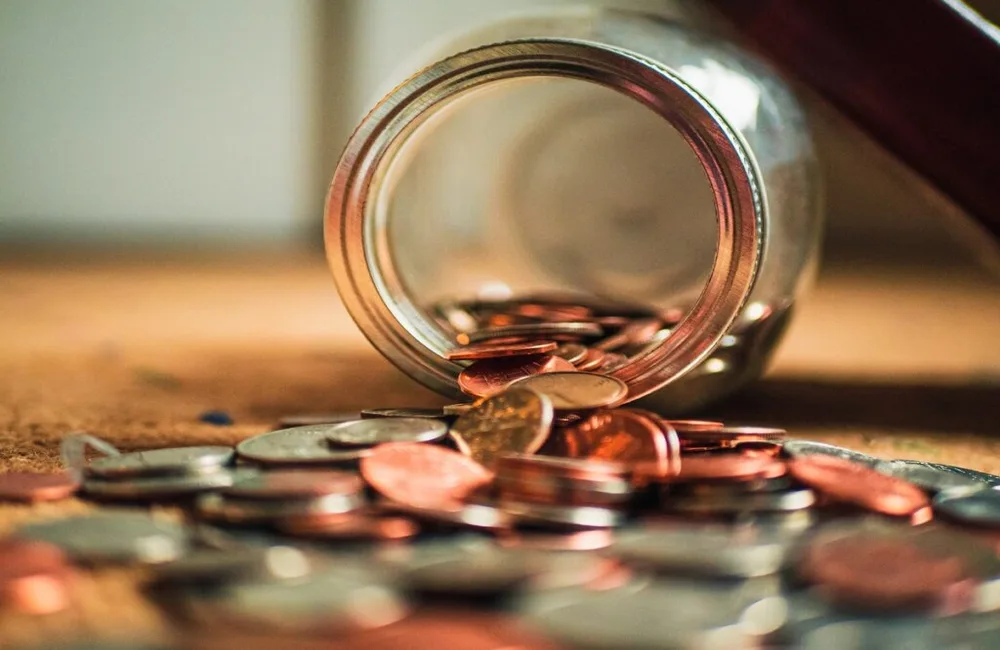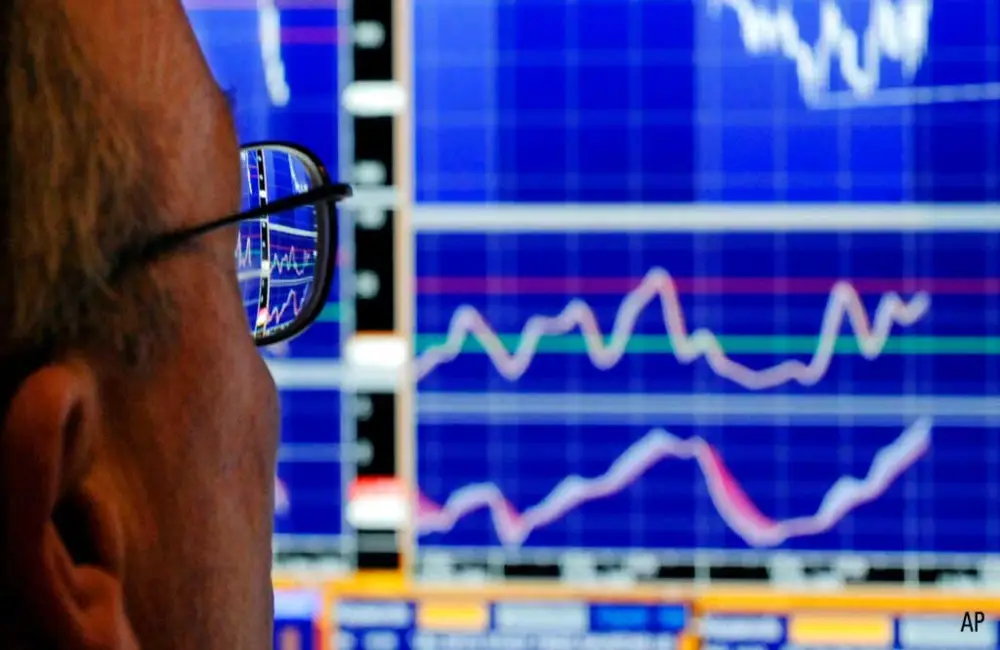ASX futures were 74 points or 1.1pc lower at 6740 near 7am AEDT on Wednesday, indicating a dip at the open.
Stocks dropped and Treasury yields climbed to multiyear highs on Tuesday as investors anticipated that central-bank policymakers will take more-aggressive steps to cool off inflation later this week. The S&P 500 fell 1.1%, and the Dow industrials and Nasdaq Composite also declined 1%.
Eyes are on the Fed, which starts a two-day policy meeting. The central bank is likely to end the meeting Wednesday by lifting its interest-rate target a three-quarters of a percentage point to a range of 3 to 3.25%. In fed-fund futures markets, traders assigned about a 20% probability to a full percentage-point hike.
Most recently, glum corporate updates from big companies like FedEx and Ford Motor have added to the gloom.
“We’re definitely starting to hear some more pessimistic tone, and I do think we’re going to hear more of that,” said Kristy Akullian, a senior strategist at BlackRock’s iShares Investment Strategy. More of the asset manager’s clients have been mentioning the possibility of moving their money from stocks to bonds as yields on bonds rise, Ms. Akullian said.
In commodity markets, Brent crude declined 1.16% to $US90.93, gold fell 0.65% to US$1,665.
Within the domestic bond market, the yield on Australian 2 Year government bonds eased to 3.41% and the 10 Year contract was down to 3.63%. The yield on the 2 Year US Treasury notes in foreign markets rose to 3.96% and the yield on the 10 Year US Treasury notes was up to 3.56%.
The Australian dollar slid to 66.94 US cents from 67.23 at the previous close. The Wall Street Journal Dollar Index, which measures the US currency against 16 others, was up 0.1% at 101.94.
Asia
China stocks ended higher, after several sessions of losses, as regional equities slumped and worries persisted about a global recession. The benchmark Shanghai Composite Index gained 0.2% to close at 3122.41, its first advance in almost a week. The Shenzhen Composite Index gained 1.1% at 2011.66 and the ChiNext Price Index rose 0.7% to 2366.90. Makers of electric cars, battery suppliers and battery-chemicals producers led the rise, with companies involved in electric vehicles bouncing back from gains on Wall Street overnight. Tianqi Lithium surged 8.3 percent, Ganfeng Lithium rose 3.4 percent and CATL gained 1.8 percent.
Hong Kong’s Hang Seng Index gained 1.2% to end at 18781.42, recouping lost ground after falling to a six-month low, following the A-share market’s gains. The city’s No. 1 official said the government hopes to minimize “inconvenience to travelers” coming into the city, providing further optimism of eased pandemic rules. Wharf REIC climbed 3.5% and Cathay Pacific increased by 2.2%. Casino operators gained on reports that the central government is considering moves to bolster the travel sector in Macau. Shares of Sands China and Galaxy Entertainment climbed 7.7% and 4.3%, respectively. Country Garden Holdings, another laggard, dropped 2.6 percent following a downgrade from S&P Global Ratings.
Stocks in Japan closed higher, with electronics and food stocks leading the way after recent sell offs driven by fears of further aggressive tightening by the Fed. Kirin Holdings rose 3.2% and Renesas Electronics rose 2.8%. The Nikkei Stock Average added 0.4% to 27688.42. Investors are looking at economic data, including U.S. housing starts data due later in the day, ahead of the Fed’s policy decision on Wednesday. The U.S. dollar traded at 143.42 Japanese yen, up from 143.20 late Monday in New York. There were no trades in 10-year Japanese government bonds.
Europe
Stocks in Europe pared some of their earlier losses. The pan-European Stoxx Europe 600 is lower by 4.45 points or 1.09%, the German DAX is declining 132.41 points or 1.03% and the French CAC 40 is slipping 82.12 points or 1.35%.
In London, the FTSE 100 shed 0.6% on Tuesday as European markets reacted to a decision by Sweden's Riksbank to raise rates by 100 basis points.
“The size of the hike has refocused on tomorrow’s Fed rate decision and whether the U.S. central bank might do something as aggressive. This would appear to be a bit of a stretch when U.S. rates are already quite a bit higher than Swedish rates but discretion would appear to be the better part of valor in this case, and markets have ratcheted lower in the same way that rates have moved higher," said Michael Hewson, CMC Markets UK's chief market analyst.
Shares in Ocado ended the day down 9.6% after the online grocer and retail-technology company was downgraded by HSBC amid concerns over smaller basket sizes.
North America
The S&P 500 lost 1.1%, and the Dow industrials and the Nasdaq Composite both inched down 1%. All eyes on the Fed, which starts a two-day policy meeting. The central bank is expected to lift its interest-rate target at the conclusion of the gathering Wednesday by three-quarters of a percentage point to a range of 3% to 3.25%. Traders in fed-fund futures priced in around a 20% chance of a full percentage-point increase.
Soaring rates have battered markets in 2022, knocking stock and bond prices into reverse after a multiyear run-up fueled in part by low interest rates. Many investors fear that tighter central-bank policy, combined with disruptions caused by Chinese Covid-19 lockdowns and the war in Ukraine, will drive the US economy into a recession next year.
Downbeat corporate updates from big companies like FedEx and Ford Motor have helped add to the gloom in recent days.
“The tone has certainly become a little more pessimistic, and I think we’re going to see more of that,” said Kristy Akullian, a senior strategist at BlackRock’s iShares Investment Strategy. More clients of the asset manager have mentioned moving money into bonds and out of stocks as bond yields rise, Ms. Akullian said.
Losses in stocks were broad by Tuesday afternoon, with all 11 sectors in the S&P down. Ford shares fell 12% a day after the automaker warned that parts shortages and increased costs will dent earnings. Gap fell 3.2%. That would involve cutting about 500 corporate jobs to save money, according to The Wall Street Journal.
Casino operators were among the only stocks in the S&P 500 to rise as investors bet that easing lockdown restrictions will attract tourists to Macau, the Asian gambling haven. Wynn Resorts added 2.9% and Las Vegas Sands was up 1.2%.
The Fed officials have made it clear they are willing to tolerate a recession if that is the price of taming inflation. Numbers last week showed inflation remained robust, bolstering expectations the central bank will continue rate hikes.
“The market still believes that the Fed would not respond in a two-way fashion to any kind of inflation surprise,” said John Roe, head of multi-asset funds at Legal & General Investment Management.
The increase in yields has been gathering speed in part because investors signed by the last bear flattener have become less predisposed to jump in and buy Treasuries now, while money managers have lost faith in the level at which yields can be expected to peak, he added. The Fed “has quite clearly, over the last few months, made it very explicit how much emphasis it’s putting on short-term inflation,” Mr. Roe said.
The rise in Treasury yields was reflected across foreign-government bonds as those central banks joined the chorus of major central banks that have started to firm up their own response to rising prices.
Sweden’s Riksbank on Tuesday raised its benchmark rate by a full percentage point and indicated that it would end asset purchases by year’s end to unwind another leg of monetary stimulus. The Bank of England is widely expected to raise rates Thursday, in the wake of a similar move by the European Central Bank at the beginning of September.
“What we’re seeing out of the global central banks is a realization that inflation is sort of a thornier problem for them to deal with than maybe they had thought a month ago, or a year ago,” said Andrew Hollenhorst, chief U.S. economist at Citigroup.
























